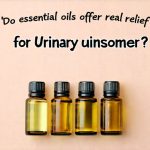The prostate gland, often overlooked in discussions about men’s health, plays a vital role in urinary function and sexual health. As men age, changes within the prostate are common, potentially leading to discomfort ranging from mild irritation to more significant issues impacting quality of life. Many factors contribute to this, including natural aging processes, lifestyle choices, and even genetics. Understanding how to support prostate health proactively is therefore essential for maintaining overall well-being. This isn’t about fearing age or inevitable decline; it’s about empowering oneself with knowledge and exploring options that can enhance comfort and potentially mitigate future concerns.
The focus of proactive prostate support often centers on lifestyle adjustments – diet, exercise, hydration – but increasingly, attention is turning to the role of nutritional supplements specifically designed to promote a healthy prostatic environment. Among these emerging approaches are formulations incorporating what are sometimes referred to as “anti-friction oils,” though this terminology isn’t standard in scientific literature and often refers to combinations of fatty acids and other compounds believed to support lubrication and reduce cellular stress within the prostate and surrounding tissues. These aren’t ‘oils’ in the traditional sense, but rather blends intended to mimic some properties associated with natural lubricating processes. It’s crucial to remember that supplements are not replacements for regular medical check-ups or prescribed treatments.
Understanding Prostate Discomfort & Lubrication
Prostate discomfort can manifest in a variety of ways. Some men experience frequent urination, especially at night (nocturia), urgency, difficulty starting or stopping urination, or a weak urine stream. Others may feel pelvic pain, discomfort during ejaculation, or even lower back pain. While these symptoms don’t always indicate prostate problems – they could be related to other conditions – it’s essential to investigate the cause with a healthcare professional. The underlying mechanisms contributing to this discomfort are complex and often involve inflammation, oxidative stress, and reduced circulation within the prostatic region. A key element often cited in discussions about prostate health is the concept of friction.
The prostate gland sits near the urethra, and during activities like urination or ejaculation, there’s natural movement and interaction between tissues. Some theories suggest that increased friction at a cellular level can contribute to inflammation and discomfort. This is where the idea behind “anti-friction” formulations comes into play. These supplements typically contain fatty acids – such as omega-3s from fish oil, flaxseed oil, or krill oil – alongside other compounds like saw palmetto extract, pumpkin seed oil, and lycopene. The intention isn’t to literally lubricate the prostate in a physical sense, but rather to provide building blocks for cellular health that may support smoother tissue interaction and reduce inflammation. It’s important to note that this is an area of ongoing research, and more robust studies are needed to fully understand these mechanisms. To further optimize your diet for prostate health, consider exploring whole plant-based meals.
The composition of these formulations isn’t standardized across brands, leading to significant variation in their potential efficacy. Look for products from reputable manufacturers that clearly list all ingredients and undergo third-party testing for purity and potency. Bioavailability – how well the body absorbs and utilizes the compounds – is also a critical factor to consider. Some formulations incorporate techniques like encapsulation or liposomal delivery systems to enhance absorption. Furthermore, it’s vital to understand that these supplements are best viewed as part of a holistic approach to prostate health, alongside lifestyle modifications.
The Role of Fatty Acids in Prostate Health
Fatty acids, particularly omega-3 fatty acids (EPA and DHA), are essential components of cell membranes throughout the body, including those within the prostate gland. They play crucial roles in reducing inflammation, supporting cellular function, and maintaining overall tissue health. Chronic inflammation is a major contributor to many prostate issues, and omega-3s have well-documented anti-inflammatory properties. – They achieve this by modulating the production of inflammatory molecules within the body. – EPA and DHA are also incorporated into cell membranes, influencing their fluidity and flexibility, which could potentially reduce friction at a cellular level.
However, it’s not just about consuming omega-3 fatty acids; the ratio between omega-3 and omega-6 fatty acids in your diet is important. The typical Western diet tends to be heavily skewed towards omega-6s (found in many processed foods and vegetable oils), which can promote inflammation. Increasing your intake of omega-3 rich foods – such as fatty fish (salmon, mackerel, sardines), flaxseeds, chia seeds, and walnuts – or supplementing with a high-quality fish oil or krill oil supplement can help restore a healthier balance. Krill oil is often favored due to its higher bioavailability and the presence of astaxanthin, an antioxidant that offers additional benefits. For more information on incorporating beneficial oils into your diet, see top cooking oils for prostate conscious diets.
It’s also worth noting that different types of omega-3 sources have varying absorption rates. Phospholipids in krill oil are thought to enhance absorption compared to traditional fish oil capsules. When choosing a supplement, consider factors like source (wild-caught vs farmed), purification methods (to remove contaminants like mercury), and encapsulation techniques. Remember, consistency is key; regular intake of omega-3s over time is more likely to yield noticeable benefits.
Saw Palmetto & Pumpkin Seed Oil Synergy
Saw palmetto extract has been a long-standing remedy for prostate health, particularly concerning benign prostatic hyperplasia (BPH) – an enlargement of the prostate gland that can cause urinary symptoms. While its exact mechanisms are still being investigated, saw palmetto is believed to inhibit the conversion of testosterone to dihydrotestosterone (DHT), a hormone implicated in prostate growth. Reducing DHT levels may help alleviate BPH symptoms. It’s often used as part of a comprehensive approach to manage mild to moderate BPH under the guidance of a healthcare professional.
Pumpkin seed oil, rich in phytosterols and other beneficial compounds, complements saw palmetto beautifully. Phytosterols can block the absorption of cholesterol, potentially reducing prostate size over time. More importantly for this discussion, pumpkin seed oil has demonstrated anti-inflammatory properties and may improve urinary flow. – Combining saw palmetto and pumpkin seed oil creates a synergistic effect, addressing multiple aspects of prostate health simultaneously. Some research suggests that this combination can be more effective than either ingredient alone. You may also find pumpkin seeds helpful for both prostate and bladder support.
The key to maximizing the benefits of these extracts lies in choosing standardized extracts – meaning they contain a consistent amount of active compounds. Look for products with clear labeling indicating the percentage of beta-sitosterol (in saw palmetto) and phytosterols (in pumpkin seed oil). It’s also important to be aware that results can vary; some individuals respond better to these remedies than others. As with any supplement, it’s crucial to discuss its use with your doctor, especially if you are taking other medications or have underlying health conditions.
Lycopene & Antioxidant Support for the Prostate
Lycopene is a carotenoid – a naturally occurring pigment found in tomatoes and other red fruits and vegetables – known for its powerful antioxidant properties. Antioxidants protect cells from damage caused by free radicals, unstable molecules that contribute to inflammation and cellular aging. The prostate gland is particularly vulnerable to oxidative stress, making lycopene an important nutrient for maintaining prostatic health. Studies have suggested a potential link between higher lycopene intake and reduced risk of prostate issues, although more research is needed.
Lycopene’s bioavailability can be enhanced by consuming it with healthy fats – think tomatoes drizzled with olive oil or incorporating avocado into your diet alongside tomato-based dishes. – Supplementing with lycopene is also an option, but choose a reputable brand that uses bioavailable forms of the nutrient (like lycopene encapsulated in olive oil). Combining lycopene with other antioxidants – such as vitamin C and vitamin E – can further amplify its protective effects.
Beyond lycopene, a diet rich in colorful fruits and vegetables provides a broad spectrum of antioxidants essential for overall health and prostate well-being. Prioritize foods like blueberries, strawberries, spinach, kale, and bell peppers. Remember that a holistic approach to nutrition is crucial; focusing on one single nutrient won’t provide the same benefits as a balanced diet packed with diverse plant compounds. Consider also daily nutrition habits that promote calm prostate function, and explore how to integrate essential vitamins and minerals into your routine for optimal support. To further enhance your dietary approach, think about incorporating foods that naturally relieve prostate pressure.





















